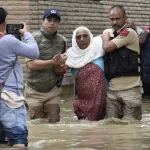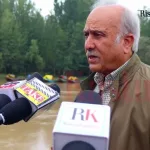Since its inception in 1945, Article 51of the UN Charter forms one of the most important sections of the Charter. The United Nations Charter was formed as a result of the ultimate failure of diplomacy in the hands of the League of Nations. The Security Council through its Chapter VII were given broad executive powers to maintain peace and security across its member States. Article 51 has been established as the keystone of international organizations for security by majority of the States.
It also acts as a basis for collective defence in seven multilateral security arrangements for 67 States. Article 51 is the legal backing for one or more States providing assistance to one or more States, if the latter is subjected to an armed attack. Though, this concept became a part of the UN Charter only after 1945, but, even before World War I, various States through treaties and other arrangements had ensured assistance from other States in times of armed attack, aggression or other hostile conditions.
“Nothing in the present Charter shall impair the inherent right of individual or collective self-defence if an armed attack occurs against a Member of the United Nations, until the Security Council has taken measures necessary to maintain international peace and security”.
Measures taken by Members in the exercise of this right of self-defence shall be immediately reported to the Security Council and shall not in any way affect the authority and responsibility of the Security Council under the present Charter to take at any time such action as it deems necessary in order to maintain or restore international peace and security.
By a simple reading of the statute it is suggested that, any actions taken as self-defence should be immediately reported to the Security Council and these reporting measures would then form the preliminary basis for actions to be initiated by the Security Council in order to put an end on to the actions initiated by the victim State as self-defence. Therefore, this makes it imperative to understand that whether the reporting requirement is mandatory or directory.
It is argued that these requirements should be treated only as directory and not mandatory because any reading of the Article that hampers the use of force by the Security Council was definitely not the intention of the law makers and should be disregarded. As it has been stated in the Nicaragua Case, it is only a procedural duty imposed upon the states to inform the Council which if not abided by will not render the actions undertaken as self-defence, invalid.
The requirement of informing the Council is only an expectation and not an obligation. However, the immediacy of reporting requirement is also essential as it is of immense importance as when the State is informing the UNSC about its actions because reports suggest that most nations have the practice of doing it later than the time they are expected to, thus hampering the powers of UNSC to act timely.
It can also be stated that the right to collective self-defence was not an inherent right that could be justified through international customary practices. Instead, it advanced the practice of making alliances amongst the states, where attack against one state was considered as an attack against all. Therefore, collective can be defined as a group of states that have common interest in the security of one another. Article 6 of the Rio Treaty, signed in 1947, contains a collective security provision for the American states hinting at attitude of states during the initial years of the United Nation towards collective self-defence.
Additionally, according to the Nicaragua case, the words, armed attack have been interpreted as actions by regular State armed forces across an international border. It also includes actions by irregular forces and mercenaries when they are sent out by or on behalf of the State for an armed attack and it is of such gravity that it would amount to armed attack if it had been carried by the regular armed forces of the State.
Applying, this definition in the case of DRC v. Uganda, the court held that Uganda did provide training and military support to the irregular force that fought against the DRC government. They also stated that the absence of structured military administration from Uganda was irrelevant and the attack on DRC was held as an armed attack.
Article 51 covers actions undertaken by the State in lieu of self-defence and not in retaliation with the objective of seeking revenge. Therefore, self-defence can be explained as an exception that provide rights to use force to the States as against Article 2(4), which prohibits the use of force in international relations and forms the very foundation of International law.
This further entails the importance of understanding as to which actions can be described as self-defence’ and which falls under the purview of illegitimate use of force. According to the Caroline Doctrine, that came in force from the Caroline case, states that self-defence can only be justified if the necessity of that self-defence is instant, overwhelming and leaving no choice of means, and no moment for deliberation. It also throws light on necessity and proportionality of actions undertaken in the garb of self-defence.
Article 51 read along with the international customary rule, The Caroline Doctrine, states that actions performed in circumstances where immediate threat is persistent and that cannot be avoided through any alternative means are classified as self-defence. Henceforth, armed attack’ should be immediate in nature.
However, it should also be noted that Caroline Doctrine only covers actions when the threat is immediate and very grave and fails to cover those circumstances where the threat can initially be lurking but, has the nature of becoming grave when it actualises into reality. Consequently, this lands us in another debate as to whether actions can be undertaken under Article 51, pre-emptively or not and further creates questions as to whether Article 51 can be invoked only if’ an armed attack has occurred.
Historically, the States were reluctant in giving Article 51 an expanded interpretation. Commentators such as Mook argued that States had instead developed an expansionist view of Article 2(4) of the Charter and avoided the use of Article 51 pre-emptively in spite of the fact that such circumstances might have been considered as lawful for acting under anticipatory self-defence.
On the other hand, the expansionist commentators such as Martineau suggested, “law should adapt itself to the necessities of social life” and therefore, with the acceptance of States acting in anticipation of armed attacks, there was a shift from literal interpretation of the provision of the treaties to interpreting the law in a meaningful manner keeping in mind the changing political equations among the States.
Hence, States should be allowed to act in anticipation of armed attacks and protect themselves. However, any and every action taken under the garb of anticipatory self-defence should justify the preconditions, namely, necessity, proportionality and immediacy. The necessity test specifies that States acting in anticipation of the armed attack should not have any other means of halting the attack. The threat should be clear, imminent and not mere general preparations by the enemy State.
For instance, in 1962, when the Unites States imposed quarantine on Cuba because previously, Cuba had installed Soviet missiles that acted as a serious direct threat to the Unites States. The threat of nuclear welfare was considered a sufficient ground for initiation of anticipatory self-defence by United States.
The other precondition required for anticipatory self-defence, proportionality forms the balance between the action and its purpose, that is, prevention of the attack from occurring. The action required to halt the armed attack should be in proportion to the threat created and should be sufficient to achieve the results. Therefore, as per the proportionality test, it has been rightly stated that when the existence of the State is at threat and the circumstances are extreme, the State can resort to nuclear weapons.
Finally, actions undertaken as anticipatory self-defence to the threat should be undertaken immediately, that is, not after the threat has ended. However, if the acts of threat consist of a series of successive actions and there is reasonable apprehension for such acts to continue from the same source then immediacy of the self-defence should be ascertained while viewing those acts as a whole.
There have been various attempts by States to justify their large-scale interventions that used the force beyond the necessary parameters of Article 2 (4) and 51 of the Charter. In their attempt to justify themselves, they have either regarded new justifications as exceptions to the existing laws or attempted to expand the definition of self-defence to include their actions under it.
To explain this further, let us take into consideration the bombings by NATO against the Republic of Yugoslavia in order to stop the Serbian ethnic cleansing of Kosovo Albanians in 1999. NATO acted without the authorization of the Security Council and was in violation of the established principles of international law. The intervention was tried to be justified in terms of humanitarian grounds.
They took the defence of that there was a “continuation of human catastrophe” and that the situation was only deteriorating and created a serious threat to peace and security. However, this intervention was regarded as illegal but there were proponents who believed that such intervention could also be justified on moral grounds. Instead, in future cases on humanitarian grounds, it was appealed that the statute should also be viewed with the perspective of morality, but it failed to meet the threshold of ‘opinio juris’, necessary for entering the international customary law.
Procedural aspects of Article 51 of United Nations should also gather attention. As the Article mentions, measures taken by the member States exercising the right of self-defence should immediately report it to the Security Council, and such report should be duly made and submitted to the Council.
However, as a matter of practice it has been witnessed that these reports are not timely submitted to the Security Council thus, rendering it impossible for them to act timely on the situation created between the nations. Further, if at all they are submitted on time, they lack the full and complete details regarding the circumstances created and the necessary actions taken and are not duly prepared. They lack the important information.
Therefore, steps such as imposing sanctions on erring nations should be taken up by the UNSC to ensure that States do comply with these procedural aspects in order to claim legitimate use of self-defence. Further, UNSC should provide a fixed time frame in which a State is expected to inform the Council in order to ensure timely actions are taken by the UNSC. Proper mechanisms and procedures shall be implemented by the UNSC to ensure that the preconditions necessary for anticipatory self-defence are strictly complied in order to avoid it from becoming a plain act of aggression.
It should also be ensured that the scope of Article 51 is not widened to the extent that it results into the erosion of the basic purpose of its establishment. In my opinion, I firmly believe that UNSC should not hesitate in taking up these appropriate measures to ensure that the objective of promotion and restoration of peace are achieved.
Though Article 51 forms such an impeccable part of the United Nations, the language of the statute still manages to raise questions and create ambiguities and conflict in its interpretation. The United Nations has failed to explicitly define the terminologies in the statute which adds to the burden of the interpreters. The words such as armed attack, collective self-defence and international peace and security have not been defined in the Charter.
Therefore, the burden falls on the interpreters to view the statute in light with the intention of the law makers and purpose for which the statute was created. However, it is the International Court of Justice that has defined some of these terminologies from time to time and case to case in order to give a better understanding of the statute with the help of international customary laws.
Therefore, it can be rightly claimed that the Article 51 of the UN Charter is vague in itself. However, it should also be taken into consideration that United Nations does not deal with a handful of nations, perhaps it deals with a huge number of countries with different political policies. Therefore, it is explicitly impossible for it to give account of all types of armed attacks as every nation would have its own way of reacting and working. Consequently, it is better to have a vague Article 51 rather than having a rigid one. The rigid law will not allow the interpreters of the law to apply it effectively as per the changing political situations.
In a situation, where there is no open war between two nations avoiding the destruction and loss that occur in times of war. Instead, limited aggressive actions were taken by the two nations, thus, avoiding escalation of conflict. Hence, it can be rightly stated that if Article 51 does not eliminate conflict completely, but at least it does prevent it from escalating.
(Author is an Advocate and can be reached at: [email protected], Twitter: @agasyedmuntazir)








